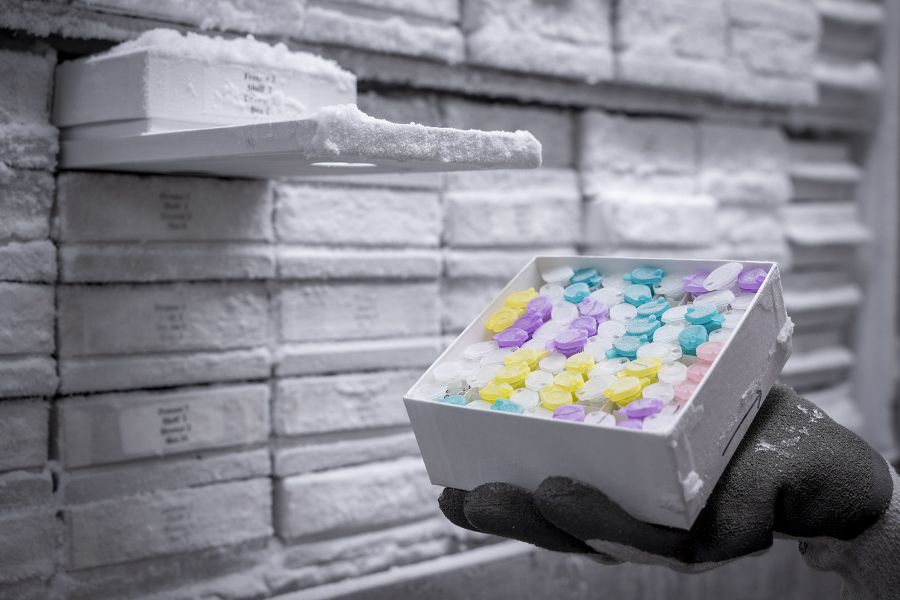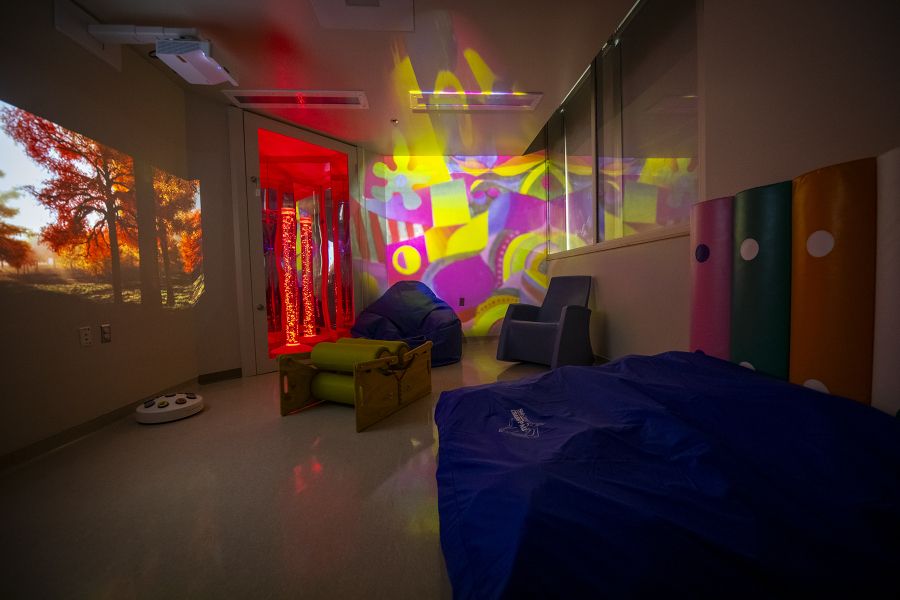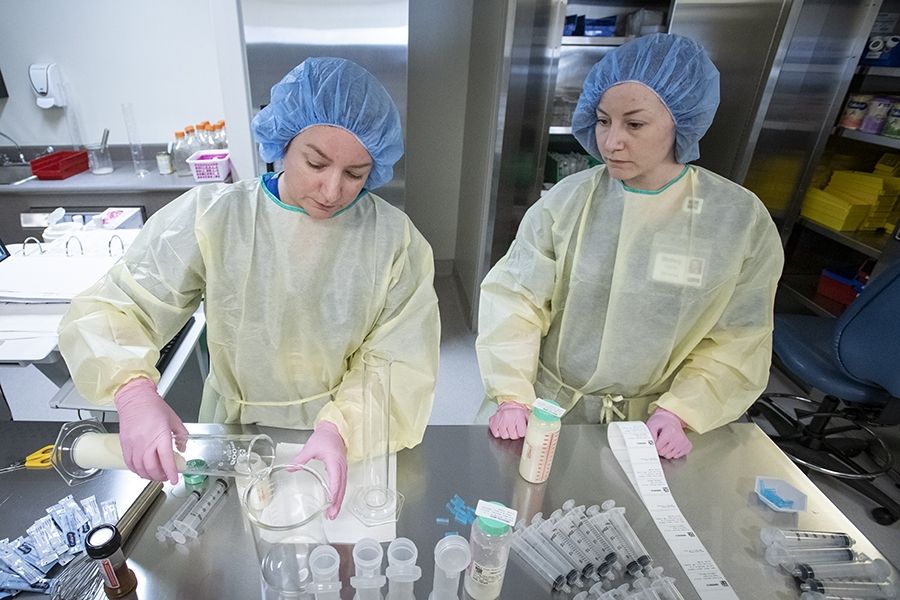
Five years of collaborative planning and learning between Clinical Nutrition and the Neonatal Intensive Care Unit (NICU) has resulted in the opening of Kingston Health Sciences Centre’s (KHSC) first milk lab, a central location on Kidd 5 for the storage, clean preparation, and nutritional fortification of fresh expressed breast milk, donor breast milk and specialized infant formula.
Since the end of February, three milk lab technicians have been working seven days a week to process and prepare feedings for NICU preterm babies and infants on Kidd 10 who have compromised immune systems. Staff members working in the lab have various technical backgrounds, and have received specialized training in infant nutrition, feeding calculations and clean techniques.
“It is very exciting to be able to provide a high standard of care for these high-risk infants,” says Angela Hollett, Professional Practice Leader, Clinical Nutrition. “Meeting best practices is possible now that we have the right people doing the right job in the safest environment.”
The primary benefits of the milk lab for infants include decreased risk of gastrointestinal infections and feeding errors, as well as getting the precise nutrients they need. Babies’ feeding needs can change throughout the day, and now with the dedicated lab, technicians have the flexibility to handle urgent changes to feeding orders.
Nurses and Nutritional Services staff were previously responsible for preparing infants’ feedings, which took time away from providing care that requires their specific expertise. As well, the environments in which the breast milk and formula were being prepared made it difficult to allow for the precise measuring required to meet the optimal nutritional needs of preterm infants or infants with feeding complications.
“This partnership between Clinical Nutrition, NICU and Pediatrics has had tremendous impact so far – our nurses have more time to spend with patients, parents have a single point of contact, and infants are getting the nutrition they need,” says Kerri-Lee Bisonette, Program Manager for the NICU.
Through University Hospitals Kingston Foundation donations, the NICU was able to provide $23,000 to purchase the specialized equipment being used in the temporary space occupied by the milk lab. Later this year, the lab will move to a newly constructed, permanent space beside the NICU.
Dr. Kimberly Dow, a neonatologist, and Brittany Dickson, registered dietitian, were a part of a group of professionals who originally advocated for the milk lab. Their initial idea led to an extensive review of best practices in North America, which included an on-site visit to Mount Sinai in Toronto, which is also from where KHSC receives its processed donor milk.
“It’s so satisfying to see this project completed, and to have been a part of setting a high standard at KHSC for quality and safety when it comes to feeding vulnerable infants,” says Dickson.
Gallery
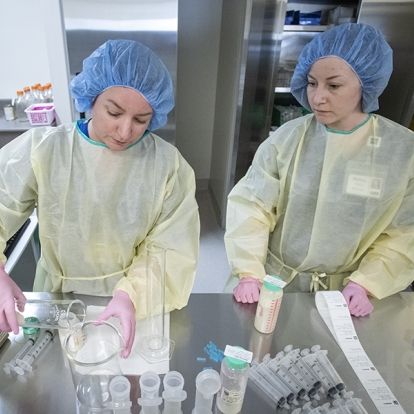
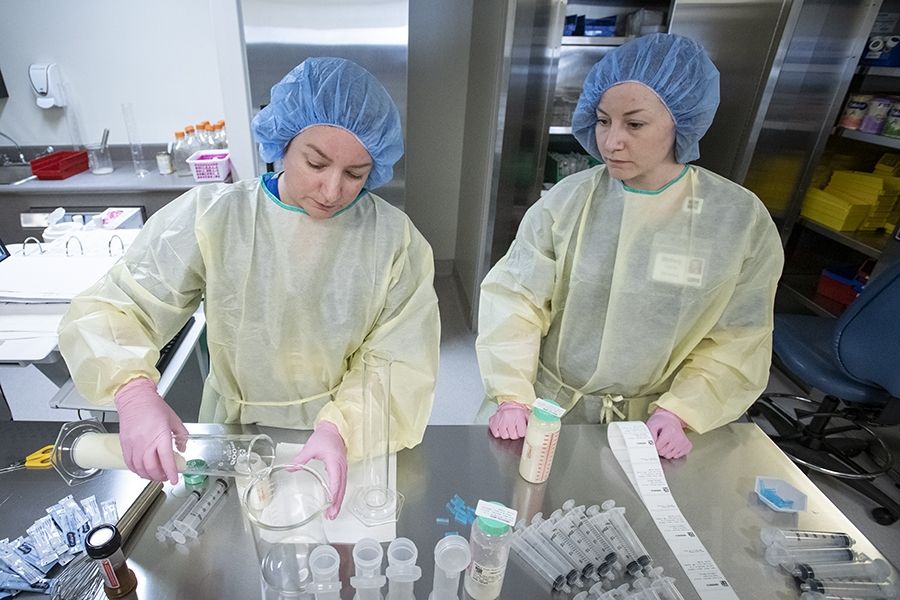
Milk lab technicians Leah Forbes (left) and Mallory Dupras in the new KHSC milk lab on Kidd 5.


